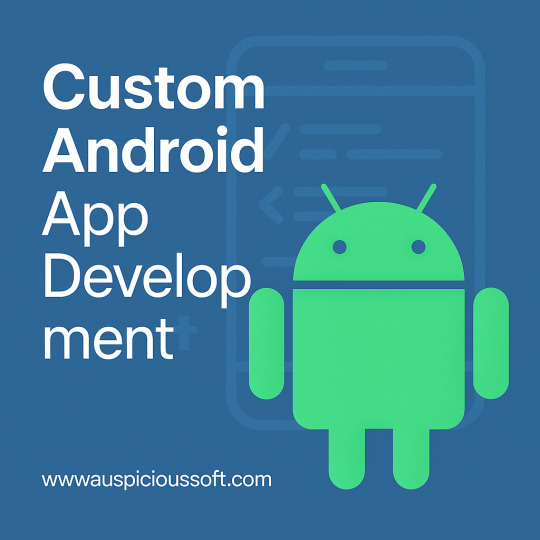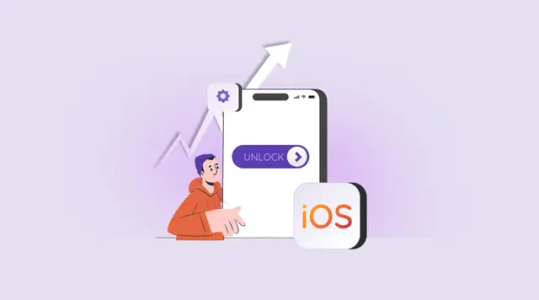#app developer in California
Explore tagged Tumblr posts
Text
How Much Does React Native App Development Cost in California?

With the growing demand for mobile applications, businesses are increasingly opting for cross-platform solutions like React Native to reduce development time and costs. California, being a tech hub, has a vibrant ecosystem of app development companies, but the cost of development can vary significantly based on several factors. In this blog, we’ll explore the cost of React Native app development in California and what influences the pricing.
Factors Influencing React Native App Development Cost
1. Complexity of the App
The complexity of your app plays a crucial role in determining the cost. Apps can be categorized into three levels of complexity:
Simple Apps – Basic apps with minimal features, such as a calculator or to-do list. ($10,000 - $30,000)
Medium Complexity Apps – Apps with additional functionalities like user authentication, API integration, and database management. ($30,000 - $80,000)
Complex Apps – Feature-rich apps with real-time data sync, AI, AR/VR, or blockchain integration. ($80,000 - $200,000+)
2. UI/UX Design
An intuitive and appealing UI/UX is essential for user engagement. Custom designs and animations can increase costs but significantly improve user experience. UI/UX design costs in California typically range from $5,000 to $30,000depending on complexity.
3. Development Team
Hiring a development team in California is costlier than in many other regions due to high labor costs. The pricing varies based on the team’s experience:
Freelancers – $30 - $100 per hour
Small Agencies – $50 - $150 per hour
Established Development Firms – $100 - $250 per hour
4. Backend Development & Third-Party Integrations
If your app requires a strong backend, the cost increases. Cloud-based solutions like AWS, Firebase, or custom-built servers influence pricing. Additionally, integrating third-party services (payment gateways, APIs, analytics tools) can add $5,000 - $50,000 to the development cost.
5. Maintenance & Updates
Post-launch maintenance is essential for app stability. Maintenance costs can range from 15-20% of the total development cost per year to fix bugs, update features, and ensure compatibility with the latest OS versions.
Estimated Cost Breakdown for React Native App Development in California
Basic App Development - $10,000 - $30,000
Medium Complexity App - $30,000 - $80,000
Complex App Development - $80,000 - $200,000+
UI/UX Design$5,000 - $30,000
Backend & Integrations - $5,000 - $50,000
Maintenance (Annual) - 15-20% of dev cost
Ways to Reduce React Native App Development Cost
Prioritize MVP Development – Focus on a Minimum Viable Product (MVP) to validate the idea before investing heavily.
Outsource Development – Hiring offshore or nearshore teams can reduce costs while maintaining quality.
Utilize Pre-built Solutions – Use pre-existing UI components and third-party integrations to speed up development.
Choose a Cost-effective Development Partner – Partnering with an experienced yet cost-effective development firm ensures quality without overspending.
Final Thoughts
React Native app development costs in California can vary widely based on complexity, team expertise, and required features. While it’s a cost-effective alternative to native development, strategic planning is essential to optimize the budget. If you’re considering building a React Native app, consult a reputable development firm to get a tailored cost estimate based on your specific needs.
Need help with React Native app development? Contact us today for a free consultation!
#app development company in California#mobile app development company in California#app development company California#mobile app developer in California#app developer in California
2 notes
·
View notes
Text










~ April so far ~
#lil foto dump#i don’t have Instagram#but I’ve been using this new app called Lapse#and it’s been cute to take fotos#and wait for them to develop#it’s like a film camera app#i love acting like a tourist in my own city#s/o to the Bay Area#and Northern California#idc what anyone says#NorCal is significantly better when it comes to the views#gay fish 🐠#personal
21 notes
·
View notes
Text
Web Development in Connecticut vs. Leading U.S. Markets: Comparing Services from New York to California
Companies across the United States are finding power in hiring professional web development services in the digital age to build efficient, responsive websites. Sure, you read all about big cities such as New York, Chicago, and Los Angeles, but web development in Connecticut is quietly starting to emerge as a reliable and cost-effective option for businesses who want quality but don’t want to break the bank. Visit Our Blog: https://www.blackbulltechnosoft.com/web-development-in-connecticut-vs-leading-u-s-markets-comparing-services-from-new-york-to-california/
#web development Connecticut#website development company in new york#top web and app development company in california
0 notes
Text
Top-Rated App Developers in California | iQlance

At iQlance, we are proud to be recognized among the most innovative and results-driven app developers in California. With years of industry experience and a passion for technology, iQlance stands at the forefront of mobile innovation, helping businesses transform their ideas into powerful digital solutions.
As a premier app development company, we specialize in designing and developing custom mobile applications that are intuitive, scalable, and tailored to meet unique business needs. Our expert team of developers, designers, and strategists work collaboratively to deliver full-cycle app development services—from initial concept and UI/UX design to coding, deployment, and ongoing maintenance.
Whether you're looking to launch a new mobile app or enhance an existing one, iQlance is your go-to partner for innovation, strategy, and success.
#app development company california#app developers california#app development services california#app development#mobile app development company
0 notes
Text
Custom Android App Development: Unlocking Business Growth with Tailored Solutions
In today’s mobile-driven world, businesses are continuously searching for ways to stay competitive and relevant. One of the most effective strategies is investing in Custom Android App Development. Unlike off-the-shelf solutions, custom apps are tailored specifically to meet the unique requirements of a business, enhancing user experience, improving efficiency, and boosting profitability.

Understanding Custom Android App Development
Custom Android App Development refers to the process of designing and building Android applications that are uniquely crafted for specific business needs. These apps are not pre-packaged or standardized; instead, they are personalized to address the particular goals and preferences of the organization.
From integrating business-specific features to offering unique user interfaces, custom apps provide a level of flexibility and functionality that general apps often lack. This makes them an ideal choice for businesses that want to deliver specialized services or experiences to their customers.
Advantages of Custom Android App Development
The growing popularity of Custom Android App Development is not without reason. Here are some key benefits businesses can gain:
1. Tailored User Experience
Custom apps are built with the end-user in mind. Businesses can design intuitive interfaces and include functionalities that match their customer’s behavior and preferences, leading to better engagement and satisfaction.
2. Enhanced Security
Generic apps may not always meet a company’s specific security standards. Custom development allows for the implementation of robust security measures tailored to safeguard sensitive data and comply with industry regulations.
3. Seamless Integration
Custom Android App Development enables easy integration with existing business systems such as CRM, ERP, and other backend software. This seamless connectivity ensures smooth operations and real-time data synchronization.
4. Scalability and Flexibility
As businesses grow, their needs evolve. Custom apps can be scaled and modified to meet future requirements without starting from scratch. This flexibility supports long-term growth and adaptation to market trends.
The Development Process of Custom Android App Development
Developing a custom Android application typically involves several phases:
Requirement Analysis
The process begins with understanding the business objectives, target audience, and required features. This phase sets the foundation for the project’s success.
UI/UX Design
A unique design is created to reflect the brand identity and provide an intuitive user experience. The design phase focuses on layout, navigation, and visual elements.
App Development
Using the latest Android development tools and frameworks, the app is coded to bring the design and functionalities to life. This phase includes frontend and backend development.
Testing and Quality Assurance
Before launching, the app undergoes rigorous testing to identify and fix bugs, ensuring smooth performance across various devices and operating system versions.
Deployment and Maintenance
Once tested, the app is deployed on the Google Play Store. Regular updates and maintenance ensure that the app remains functional, secure, and up-to-date with user feedback and system changes.
Why Businesses Should Invest in Custom Android App Development
In a competitive digital market, having a unique app can set a brand apart. Businesses that invest in Custom Android App Development can leverage advanced technology, better user retention, and increased customer loyalty.
It also allows companies to collect valuable user data, analyze behavior patterns, and refine services accordingly. This data-driven approach leads to smarter decision-making and improved ROI.
Moreover, a custom app strengthens brand presence, acting as a direct marketing channel to engage with customers through push notifications, personalized content, and exclusive offers.
Choosing the Right Development Partner
To fully realize the benefits of Custom Android App Development, selecting the right development partner is crucial. A reliable and experienced company will understand your business vision, offer strategic insights, and deliver a high-quality product on time.
Auspicious Soft Pvt Ltd is one such trusted name known for delivering innovative Android app solutions tailored to client needs. With a skilled team and a commitment to excellence, they ensure your custom app meets all expectations and drives business growth.
Conclusion
Custom Android App Development is no longer a luxury but a strategic necessity for businesses aiming to thrive in the digital space. It empowers organizations with tailor-made solutions that offer functionality, security, and a competitive edge. Whether you're a startup or an established enterprise, investing in a custom Android app can redefine how you interact with customers and achieve your business goals.
#app development california#app developers california#mobile app developers#ios app developer#custom ios app development#ios app development
0 notes
Text

How Mobile Businesses Are Shaping the Economy in 2025
Learn how mobile enterprises are reshaping the economy in 2025, leveraging 5G, AI, and fintech to transform various industries.
#mobile application services#application development firm#best mobile app development company#custom ios app development in california#custom mobile application development company#hire ios app developer#hire iOS app developers#hire iOS developer#hire ios developers
0 notes
Text
Future-Proofing Innovation: How Custom iOS App Development Empowers Unique Business Ideas

Introduction: Why One-Size-Fits-All Doesn’t Work Anymore
In a world where innovation defines success, businesses with unique ideas can’t rely on off-the-shelf mobile solutions. iOS, known for its security, performance, and loyal user base, offers an exceptional foundation—but real power lies in custom iOS development. It’s not just about having an app—it’s about building an experience that aligns with your distinct vision and evolves with the future.
1. What is Custom iOS App Development?
Custom iOS app development is the process of designing and building tailor-made apps for Apple devices—iPhone, iPad, and more—specifically crafted to solve unique business problems or serve niche customer needs. This approach goes beyond basic templates, ensuring the app is fully aligned with brand identity, user behavior, and operational goals.
2. Why Unique Business Ideas Need Custom Solutions
Every innovative idea comes with unique workflows, user journeys, and expectations. Custom iOS development lets you:
Differentiate in a crowded marketplace
Build IP (Intellectual Property) around your idea
Offer niche functionality that no off-the-shelf app can provide
Evolve the product roadmap over time based on user feedback
Whether you’re building a fitness app for a specific demographic or creating an on-demand service for rural areas, customization is key to success.
3. Making Your App Future-Ready: Key Strategies
A future-ready app is not just about today’s features. It must scale, adapt, and innovate as user expectations and technologies evolve. Here’s how custom iOS development helps:
a. Scalability
Built with growth in mind, custom apps can handle increasing traffic, data, and feature updates smoothly.
b. Integration-Ready
Custom apps can integrate seamlessly with third-party tools, IoT devices, payment systems, or even enterprise software like Salesforce or SAP.
c. Use of Latest Apple Features
Stay ahead by integrating the latest Apple frameworks—ARKit, SwiftUI, SiriKit, and more.
d. Data Security & Privacy
With Apple’s strong privacy guidelines, a custom app can implement advanced security standards to protect sensitive data—crucial for industries like healthcare and finance.
4. Industries Driving Innovation with Custom iOS Apps
Custom iOS solutions are transforming several industries:
Healthcare – Telehealth, appointment booking, patient monitoring
Fintech – Secure payment gateways, portfolio tracking, crypto integration
Retail & eCommerce – Personalized shopping, AR try-ons, smart loyalty programs
Education – LMS platforms, remote classrooms, interactive learning tools
Logistics – Real-time tracking, smart routing, supply chain visibility
5. Choosing the Right iOS Development Partner
Future-ready apps require more than coding skills. Look for a development partner who:
Understands your industry and user personas
Offers strategic consultation—not just technical delivery
Designs with UX and UI best practices
Builds with future scalability in mind
Provides post-launch support and version upgrades
Conclusion: Start Building for Tomorrow, Today
Innovation doesn’t wait. If your business idea is bold, niche, or groundbreaking, it deserves a solution built just for it. Custom iOS mobile app development is the bridge between your unique vision and a high-performance, future-ready mobile experience. Don’t settle for generic—build something that truly belongs to you.
#app development company in California#mobile app development company in California#app development company California#mobile app developer in California#app developer in California#app development company in texas#mobile app development company in texas#app development company texas#mobile app developer in texas#app developer in texas
0 notes
Text

How Mobile Businesses Are Shaping the Economy in 2025
Uncover how mobile enterprises are shaping the economy in 2025, leveraging 5G, AI, and fintech to transform industries.
#mobile application development services#mobile application services#application development firm#best mobile app development company#custom ios app development in california#hire iOS developer#hire iphone app developer#hire iphone app developers#hire iphone application developer
0 notes
Text
Mobile App Development in California – DCom USA
In today’s digital era, having a custom mobile app is essential for businesses looking to expand their reach and improve customer engagement. If you are searching for top-notch mobile app development California, look no further than DCom USA. With years of experience and a team of expert developers, DCom USA specializes in building high-performance, user-friendly mobile applications tailored to your business needs.
Why Choose DCom USA for Mobile App Development?
DCom USA is a leading mobile app development company in California, known for its innovative solutions and customer-centric approach. Here’s why businesses trust DCom USA:
✔ Custom App Development – Whether you need an iOS, Android, or cross-platform app, we create tailor-made solutions. ✔ User-Friendly Interface – Our apps are designed to be intuitive and easy to navigate. ✔ Cutting-Edge Technology – We leverage the latest frameworks and tools for seamless app performance. ✔ End-to-End Services – From ideation to deployment and maintenance, we cover every stage of the app development process. ✔ Scalability & Security – Our apps are built to scale with your business while ensuring top-tier security.
Our Mobile App Development Services
DCom USA offers a wide range of mobile app development services to meet the diverse needs of businesses:
1. iOS App Development
Our expert developers create high-quality iOS applications optimized for iPhones and iPads, ensuring a seamless user experience.
2. Android App Development
We build robust and scalable Android apps that cater to a wide range of devices and provide a smooth user experience.
3. Cross-Platform App Development
Using frameworks like Flutter and React Native, we develop cross-platform apps that run efficiently on both iOS and Android devices.
4. UI/UX Design
A great mobile app needs an engaging design. Our UI/UX experts create visually appealing and intuitive interfaces to enhance user interaction.
5. App Maintenance & Support
We provide ongoing app maintenance to keep your mobile application up-to-date with the latest features and security enhancements.
Industries We Serve
DCom USA has experience developing mobile applications for various industries, including:
E-commerce & Retail
Healthcare & Fitness
Finance & Fintech
Education & E-learning
Real Estate & Property Management
Entertainment & Media
The DCom USA Development Process
Our mobile app development process is streamlined to deliver high-quality results:
Consultation & Requirement Analysis – Understanding your business goals and app objectives.
UI/UX Design – Creating wireframes and designing user-friendly interfaces.
Development & Testing – Coding, integration, and rigorous testing for seamless functionality.
Deployment & Launch – Publishing the app on app stores and ensuring smooth deployment.
Support & Maintenance – Continuous monitoring, updates, and technical support.
Get Your Mobile App Developed by Experts!
If you are looking for top mobile app development services in California, DCom USA is the perfect partner to bring your ideas to life. Our expert developers ensure that your app meets the highest industry standards while delivering an exceptional user experience.
📍 Location: California, USA �� Contact Us: Get in touch with DCom USA today to discuss your mobile app development needs!Take your business to the next level with a feature-rich mobile app development California – Partner with DCom USA today!
0 notes
Text
#Offshore Mobile App Development#Mobile app development company#Hire Mobile app developer#Mobile app development company in USA#Mobile app development company in Los Angeles#Mobile app development company in India#Mobile app development company in California
1 note
·
View note
Text
Choosing Between Web App vs Mobile App: What’s Right for Your Business?
In the current world where everything goes digital-first, as far as a company launches a new product or platform, one of the biggest decisions it has to make is: mobile app or web site…?But how do you choose? In this blog we will differentiate the two, discuss their advantages, and give things to consider before hiring a best mobile app development company in Houston or a web development company in Pennsylvania to make your idea reality. Visit Our blog: https://www.blackbulltechnosoft.com/web-app-vs-mobile-app-whats-right-for-your-business/
#web development company in pennsylvania#best web development company in california#best mobile app development companies in new york#best mobile app development company in houston
0 notes
Text
#Application Development company in california#social media marketing agencies in california#Mobile Application Development in california#app designers near me in california
1 note
·
View note
Text
Healthcare App Development Company USA | Protonshub Technologies
Looking for a healthcare app development company in the USA? Protonshub is the best option to develop your mobile application. From designing to development and maintenance they provide end to end services. They have experienced developers that deliver the quality in their work. Contact: [email protected] for more information.
#healthcare app development company usa#healthcare app development usa#healthcare mobile app development services usa#healthcare app development company in usa#Healthcare App Development Company united states#Healthcare App Development Company california#healthcare application development company#healthcare app development solutions#healthcare app development services usa#healthcare app developers usa#healthcare app development agency usa
0 notes
Text
Why Hiring Flutter App Developers, Android & iOS Development Agencies is Key to Scalable Mobile Apps
Looking to build a high-performing mobile app? Hire skilled Flutter app developers from a trusted web development agency in California, USA. As a leading app development company, we deliver fast, scalable, and cost-effective cross-platform solutions tailored to your business needs.
#Flutter app developers#Android development agency#iOS development agency in USA#app development company#Web development agency in california#USA
0 notes
Text

Cyber Puzzle Net, we specialize in transforming ideas into reality through cutting-edge software solutions, innovative web designs, mobile applications, and comprehensive digital marketing strategies. Our blog is your go-to resource for staying updated on the latest trends, best practices, and insights from the tech world.
Whether you're a startup aiming to disrupt the market or an established business looking to optimize operations, our blog provides valuable information tailored to your needs. Explore articles on the latest advancements in custom software development, from leveraging AI and machine learning to streamline processes to designing user-friendly applications that captivate audiences. Dive into the world of digital marketing with tips on improving SEO rankings, crafting impactful social media strategies, and using analytics to measure success. Stay informed about industry best practices for creating responsive, aesthetically pleasing websites that not only attract traffic but also convert visitors into loyal customers.
At Cyber Puzzle Net, we believe in empowering businesses with knowledge. Our expert team shares actionable advice, success stories, and case studies to inspire and guide your digital transformation journey.
Bookmark this space to stay connected with the tech innovations that matter most to your business. Let Cyber Puzzle Net help you piece together the perfect digital solution!
#web design company#web design services#software development services#custom software devlopment company#custom website development#digital marketing company california#digital marketing agency#web app development company#digital marketing company#web design and development company
0 notes
Text
Choosing Your AI Arsenal: A Guide to Tools and Frameworks for Mobile App Developers

In today's rapidly evolving mobile landscape, Artificial Intelligence (AI) is no longer a futuristic concept but a powerful differentiator. From personalized user experiences to intelligent automation, integrating AI can elevate your mobile app from good to extraordinary. But with a plethora of tools and frameworks available, how do you choose the right AI arsenal for your mobile development journey?
This guide will help mobile app developers navigate the exciting world of AI, highlighting key tools and frameworks, and offering insights to help you make informed decisions.
Why AI in Mobile Apps? The Power of Intelligence in Your Pocket
Before diving into the "how," let's quickly touch upon the "why." AI in mobile apps offers a multitude of benefits:
Personalization: Tailoring content, recommendations, and experiences to individual users based on their behavior and preferences.
Enhanced User Experience: Enabling features like voice assistants, intelligent chatbots, and real-time image recognition for intuitive interactions.
Automation: Automating repetitive tasks, streamlining workflows, and improving operational efficiency.
Predictive Analytics: Analyzing user data to anticipate needs, predict trends, and offer proactive solutions.
Improved Security: Leveraging AI for biometric authentication, fraud detection, and anomaly identification.
Your AI Arsenal: Native vs. Cross-Platform Approaches
The first major decision point is often whether to go native (iOS or Android specific) or cross-platform. This choice heavily influences your AI tool selection.
Native Development: Unleashing Platform-Specific Power
For developers building highly optimized, performance-critical AI features, native development often offers the best control and access to device hardware.
For iOS Developers:
Core ML: Apple's dedicated machine learning framework. Core ML allows you to seamlessly integrate trained machine learning models into your iOS, macOS, tvOS, and watchOS apps. It's optimized for on-device inference, ensuring fast and private AI functionalities.
Pros: Deep integration with the Apple ecosystem, optimized for Apple silicon, strong privacy features due to on-device processing.
Cons: Primarily for inference; model training typically happens elsewhere.
Create ML: A higher-level framework built on top of Core ML, allowing developers to train machine learning models directly on their Mac without extensive coding. Great for image classification, object detection, and more.
Pros: User-friendly for training, integrates well with Core ML.
Vision Framework: Apple's powerful computer vision framework that works hand-in-hand with Core ML. It provides high-level APIs for tasks like face detection, object tracking, text recognition, and image analysis.
ARKit: While not strictly an AI framework, ARKit (Apple's Augmented Reality platform) often integrates AI for environmental understanding, object recognition, and realistic AR experiences.
For Android Developers:
TensorFlow Lite: Google's lightweight version of TensorFlow, specifically designed for mobile and embedded devices. It enables on-device machine learning inference with low latency and a small binary size.
Pros: Cross-platform (Android, iOS, embedded), excellent for on-device inference, strong community support.
Cons: Can be more complex for beginners compared to higher-level abstractions.
ML Kit (Google Firebase): A mobile SDK that brings Google's machine learning expertise to your Android and iOS apps. It offers ready-to-use APIs for common ML tasks (like text recognition, face detection, barcode scanning) and also allows you to deploy custom models.
Pros: Easy to use, integrates seamlessly with Firebase, offers both on-device and cloud-based APIs.
Cons: Less granular control over model details compared to pure TensorFlow Lite.
PyTorch Mobile: A lightweight runtime for deploying PyTorch models on mobile devices. It offers flexibility for researchers and developers who prefer the PyTorch ecosystem.
Pros: Dynamic computational graph, strong community, good for research and prototyping.
MediaPipe: A Google-developed framework for building cross-platform, custom machine learning solutions. It provides pre-built solutions for tasks like hand tracking, face detection, and pose estimation, optimized for real-time performance.
Cross-Platform Development: Broader Reach with AI
If your goal is to reach both iOS and Android users with a single codebase, cross-platform frameworks offer a compelling solution.
TensorFlow Lite (with Flutter/React Native integration): TensorFlow Lite models can be integrated into Flutter and React Native apps, allowing you to leverage your trained models across platforms. You'll typically use platform-specific wrappers or plugins to interface with the native TensorFlow Lite libraries.
ML Kit (Firebase): As mentioned, ML Kit is inherently cross-platform and works seamlessly with both Android and iOS applications, making it a natural fit for Flutter and React Native projects.
OpenCV: A comprehensive open-source library for computer vision tasks. While not strictly an AI framework, its image and video processing capabilities are fundamental for many AI applications, and it can be integrated into cross-platform apps.
General-Purpose AI/ML Frameworks (Often used for Model Training)
While the above are mobile-specific, the following are crucial for training the models that you'll then deploy to your mobile apps:
TensorFlow (Full): The full TensorFlow library is a powerful and flexible open-source machine learning framework from Google. It's ideal for building, training, and deploying complex deep learning models.
PyTorch: Developed by Facebook's AI Research lab (FAIR), PyTorch is known for its dynamic computation graph, making it popular for research and rapid prototyping.
Keras: A high-level neural networks API that runs on top of TensorFlow, Theano, or CNTK. Keras is known for its user-friendliness and is excellent for rapid prototyping and beginners in deep learning.
Hugging Face Transformers: A leading library for Natural Language Processing (NLP) with a vast collection of pre-trained models (like BERT, GPT, T5). If your app involves text-based AI, this is a must-explore.
Scikit-learn: A Python library offering a wide range of traditional machine learning algorithms (classification, regression, clustering). Great for foundational ML tasks and data preprocessing.
Emerging Trends and Tools
The AI landscape is constantly evolving. Keep an eye on:
Generative AI (e.g., Gemini Nano, Firebase AI): Google's Gemini models (including Gemini Nano for on-device use) are making generative AI more accessible for mobile developers, enabling features like intelligent content creation and enhanced conversational experiences. Firebase AI Logic also allows for easy integration of Gemini via client SDKs or server-side orchestration.
AI-Powered Development Tools (e.g., Gemini in Android Studio, GitHub Copilot): These tools use AI to assist developers with code generation, completion, debugging, and best practices, significantly accelerating the development process.
ONNX (Open Neural Network Exchange): A standard format for AI models, allowing for interoperability between different frameworks and deployment environments. This is crucial for cross-platform model deployment.
Choosing Your Arsenal: Key Considerations
When selecting your AI tools and frameworks, consider the following:
Your Project's Needs:
What problem are you trying to solve with AI? (e.g., image recognition, natural language understanding, recommendation engine).
Do you need on-device processing (for speed, privacy, offline functionality) or cloud-based AI? On-device is generally faster and more private, but cloud services can handle more complex models and larger datasets.
Platform (Native vs. Cross-Platform): This is a fundamental decision that will narrow down your options significantly.
Performance Requirements: How critical is real-time inference?
Data Privacy and Security: Is sensitive data being processed? On-device solutions often offer better privacy.
Developer Expertise: Are your developers comfortable with Python (for training), Swift/Kotlin (for native), or JavaScript/Dart (for cross-platform)?
Community and Support: Active communities and extensive documentation are invaluable for troubleshooting and learning.
Scalability: Will your AI features need to scale to handle a large number of users or complex data?
Cost: Cloud-based AI services often involve usage-based pricing.
Conclusion
The integration of AI into mobile applications is no longer a luxury but a strategic imperative. By carefully considering your project's unique requirements and leveraging the powerful AI tools and frameworks available, mobile app developers can unlock new possibilities, create truly intelligent experiences, and build apps that stand out in a crowded marketplace. Start experimenting, explore the possibilities, and choose the AI arsenal that empowers you to build the next generation of smart mobile applications.
#app development company in delhi#mobile app development company in delhi#app developer in delhi#app development agency in delhi#app development companies in delhi#app development company in California#mobile app development company in California#app development company California#mobile app developer in California#app developer in California#app development company in texas#mobile app development company in texas#app development company texas#mobile app developer in texas#app developer in texas
0 notes